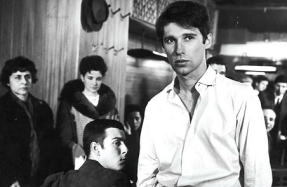Judged and Found Wanting

Although greeted with almost unanimously positive reviews, the HBO series Silicon Valley—which chronicled the misadventures of a promising tech startup called Pied Piper over 53 halfhour episodes from April 2014 to December 2019—was not one of those series breathlessly hyped every other week or considered a mainstream smash during a past decade that overenthusiastically embraced serialized, streaming product. But with its casual commentary on the false promises and inherent dangers of technological advances (which have enabled the success of streaming services, amongst other things), Silicon Valley feels like one of the defining series of this fucked-up decennium in retrospect. It also fits the pattern of the best and most resonant works created by that quasi-anthropological satirist Mike Judge, whose mixture of pointed and subversive social observations with a certain humanist compassion (even for the worst offenders) gives his concoctions lasting cult appeal, whether they immediately connect with an audience or not.
Sure, Judge’s breakthrough in the ’90s with the animated adventures of delinquent couch potatoes Beavis and Butt-Head was indeed a super-hit, leading to the laudable big-screen offspring (1996) as well as the animated Texas suburbia sitcom (1997–2010), which brought writers and alumni John Altschuler and Dave Krinsky into the inner circle of the auteur’s aptly named Judgemental Films company. Altschuler and Krinsky subsequently co-created with Judge, which in many ways carries on from the trio of live-action cinematic comedies Judge made during ’s televisual tenure. First was the workplace satire (1998), whose skewering of the dehumanizing effects of cubicle “culture” registered how the insidiously passive-aggressive methods of the capitalist system dominate our lives. Instead of playing up the tired evil-corporation trope favoured by popular culture, it’s a realistic chronicle of how accumulating small-scale humiliations lead to a corresponding numbing of our emotional, intellectual, and moral reflexes. (Once its protagonist breaks free from his shackles by allowing himself to simply , he comes to the joyful conclusion that “I did absolutely nothing today, and it was everything I thought it could be.”)
You’re reading a preview, subscribe to read more.
Start your free 30 days



